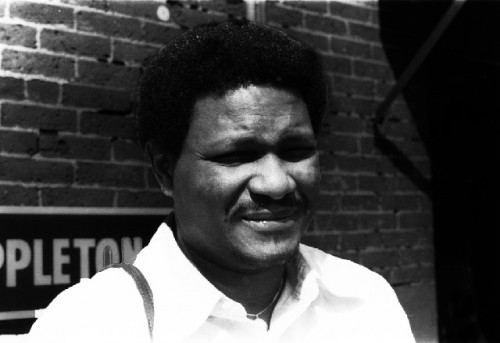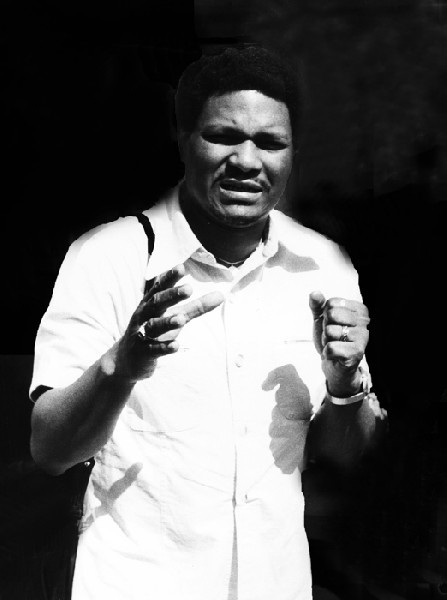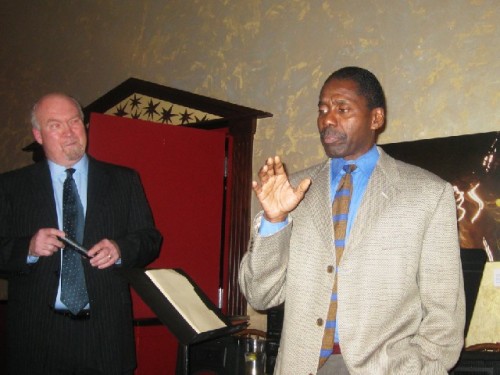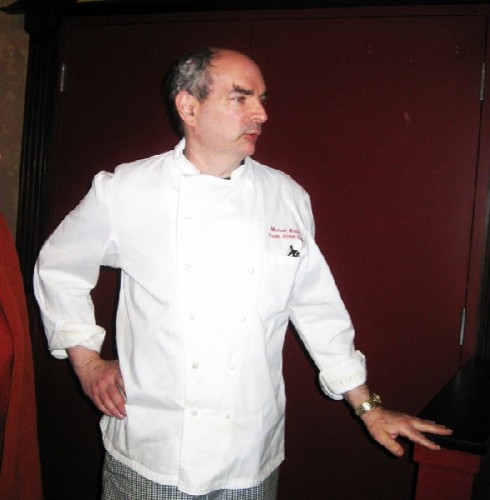McCoy Tyner at the Mahaiwe
Jazz in the Berkshires
By: Charles Giuliano - Feb 22, 2010
A legend of jazz, pianist McCoy Tyner appeared last night at the Mahaiwe Performing Arts Center in Great Barrington. Prior to the concert there was a dinner next door, prepared by Chef, Michael Ballon, at the Castle Street Café. Tom Reney, of WFCR, delivered an overview of Tyner, early years with John Coltrane, and his legacy. He described Tyner as one of the unique and formative stylists of his generation.
Avery Sharpe, a bass player who toured with Tyner for some 20 years, listened to Reney from the back of the restaurant. The Berkshire resident had come by to hear McCoy. Reney invited him to make a few comments and he regaled us with intriguing tales of life on the road.
Some time had lapsed since I last heard Tyner perform. There was a gig at Lulu White's in Boston's South End. I interviewed McCoy and recall a vigorous, powerful man. We are close in age. Tyner was born on December 11, 1938 and grew up in Philadelphia. He played the piano in his mother's beauty shop. It was there that he was discovered by the premier bop pianist, Bud Powell, who lived in the hood. Through a series of connections he joined Coltrane when he was barely 20.
With bass player, Jimmy Garrison, and drummer, Elvin Jones, for four years Tyner toured and recorded with Coltrane relentlessly. They developed a collective style of improvisation that entailed sheets of sound. The rhythm section laid down a solid base that supported and launched Trane's ever more inventive solos. There was also a lot of independence as individual musicians were accorded extended solos.
The one and only time I heard Trane perform at Boston's Jazz Workshop the set consisted of a single tune. At one point Trane and his friend "Lowrider" departed the club leaving Garrison to perform a thirty minute solo. It was one of the experiences of a lifetime. Not long after Trane died of liver cancer at the age of 41 in 1967. Garrison also died young at just 42 in 1976. Whom the gods love.
The synergy of what has come to be known as Coltrane's classic quartet has assured Tyner a place in the pantheon of jazz. It also overshadowed his career. When Trane evolved into free jazz and cacophony both Jones and Tyner departed. For a time Tyner foundered returning to Philadelphia. As Reney commented he considered abandoning music and worked as a cab driver. Eventually, he switched to Milestones a more supportive record label. Tyner established a secure career as the leader of trios and quartets recording many well regarded recordings.
It was poignant last night to hear him perform. There was evidence that he is in declining health. Between tunes he spoke with the audience in a raspy whisper that at times was inaudible. While he appeared somewhat frail there was the familiar, robust, all out attack. For Tyner the piano is truly a percussion instrument. At the end of the set, which lasted about an hour, he rose and thanked the audience.
Stating "I'll see you another time" he slowly departed the stage with measured steps. The audience stood and cheered for what seemed a terribly long time. It dragged on in anticipation of an encore. It was embarrassing and disappointing when the house lights came up. Arguably, he blew his load. That's all there was in the tank. Hey, I can relate to that. Time does make cowards of us all.
During his performance Tyner delivered a powerful signature set. He had two remarkable accompanists in Gerald Cannon, bass, and Eric Kamau Gravatt, drums. They both had lots of space to stretch out and show us their chops. At one point in the program they departed leaving Tyner to perform a wispy, intricate, melancholy solo.
The evening was much as I had anticipated. The challenge was to discern just how the playing has changed and evolved over decades. There is still the powerful bass line and a right hand that never seems to stray far from a middle range. Now and then there were arpeggios but mostly he got into a groove and dug a trench through the middle of a tune. This was perfectly augmented with accents on percussion, and Cannon's powerful, booming, walking bass line. They settled in and worked the daylights out of the rhythm. But as the set progressed there was also sameness. You sensed hearing a truly phenomenal rhythm section that cried out for a horn. In 2008 Tyner toured with former Miles Davis horn player, Gary Bartz, but on this night he appeared with a trio.
While Tyner was a perfect match for the free style and wall of sound of Trane, on his own, one senses the limits of his style. He is not an inventive improviser. There was little in the program that evoked the familiar. He does not perform a set of standards. A single exception was the Duke Ellington, 1939 composition "In a Mellotone." He started with a recognizable statement of the melody before departing and shaping it in his unique manner.
The evening had started with what seemed to me the changes on a standard ballad "Moonlight in Vermont." The references were so oblique as to be subliminal. He informed us that it was his original composition "Fly with the Wind." It has been recorded with strings but graciously he acknowledged Cannon as his one man symphony orchestra. He followed with "Ballad for Aisha." Gravatt was featured in "African Village."
While Tyner is known for that percussive attack in this hearing it seemed richly nuanced. While thunderous the dynamics and touch were greatly varied. He would hook into a line and tug on it. Listening I wandered off thinking of Hemingway's "The Old Man and the Sea." In musical terms there was that same sense of age, skill, life experience and the struggle to land that huge fish of sound.
Getting back to his roots in Philly with some ironic melancholy he related the inspiration of writing a tune "Blues on the Corner." It conveyed the tough dudes who hung around his mother's beauty shop.
Sure we would have liked more. We left the theater at 8:15. That makes for an early evening. On the drive home we listened to Jazz from Castle Street Cafe. A CD complements of the chef. It is a nice compilation of 14 tracks with a collage of musicians who have performed during the past 21 years. There were all those vintage black and white jazz portraits on the walls of the restaurant. We left with memories of chatting with Avery Sharpe. He remembered that gig at Lulu White's. He talked about studying with Max Roach, Archie Shepp and Reggie Workman while an undergraduate at U. Mass. Amherst. "Max taught me how to listen to drummers" Sharpe recalled. His first gig on tour in Europe was with Shepp.
We got home in time to catch the Olympics. But I tossed around all night thinking about Tyner. It got my groove on. Made me think of all those years hanging out at Storyville, Connely's Stardust Room in Roxbury, Lennie's on the Turnpike, the Jazz Workshop and Paul's Mall, Lulu White's, Sandy's Jazz Revival in Beverly. Jazz under the stars at Newport. Gone, all gone baby. Thanks for the memories. How great last night to get my wad back. Thanks McCoy, take your time. Take it slow man. Later.






